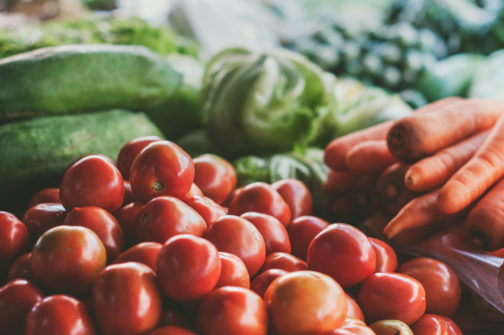There has been quite a lot of talk about basic income lately in the news. A basic income is a guarantee to Canadian families and individuals that they will be able to meet a minimum income level regardless of employment status.
This could mean big things for the hundreds of thousands of people in Toronto that struggle to make ends meet to pay for everyday needs such as rent, utilities, transit and food.
 This has come up for a lot of debate among Canadians. It also raises a lot of questions about the impact on our communities and economy. In an effort to answer some of the most asked questions about basic income, I spoke with Elaine Power, co-founder of the Kingston Action Group for Basic Income Guarantee.
This has come up for a lot of debate among Canadians. It also raises a lot of questions about the impact on our communities and economy. In an effort to answer some of the most asked questions about basic income, I spoke with Elaine Power, co-founder of the Kingston Action Group for Basic Income Guarantee.
How do you think basic income will benefit the community?
If we had a basic income program that was available to all who needed it and a basic income program that effectively eliminated poverty, there could be dramatic benefits to the community. The research suggests that public health would improve and health care costs would drop. Eliminating poverty means that kids would have a better start in life, do better in school and have fairer chances in life, and this could also decrease crime rates over time.
If we take away the desperate need for people to find any kind of work that they can, it could liberate people to engage their passion and contribute to their communities through volunteer work and the arts, or to take risks, e.g., with a small business, that they wouldn’t otherwise do. When people have basic economic security, it enables them to dare to do new & different things.
I believe that a basic income program will help build social solidarity, to rebuild a sense of the collective, that we are part of neighbourhoods and communities.

How will this impact the economy & the taxpayer?
People who live in poverty spend their money on basic necessities, like food, shelter, clothing, activities for their kids. They won’t be taking their money out of the country for expensive vacations. That will have an economic multiplier effect, and could make a profound impact in smaller, more rural communities that are struggling.
Research shows that poverty has a high economic cost and that poverty reduction has a big return on investment. A report by the Ontario Association of Food Banks suggested “With the huge savings that could be achieved over time by reducing poverty and its burdensome social costs, the province could very likely pay for the need mix of policies without asking taxpayers for anything more.” The Canadian Centre for Policy Alternatives has calculated that every dollar invested in reducing poverty would result in about a $2 return on investment. In other words, poverty reduction is at worst cost-neutral and likely would save money over time.
Do you feel as though there could be any negatives/drawbacks that come from having a basic income?
Well, the negatives or drawbacks depend on the type of basic income program that would get implemented. There are different models. Some on the political right would like to see the implementation of a basic income in order to reduce other government supports and services, like public housing. This would not improve the lives of people living in poverty or likely reduce poverty overall, because people would have to pay more of their income for what are now public services. We would not see the types of economic savings I mentioned above in that case.
I am a proponent of a progressive basic income that is part of rebuilding the social safety net, would improve the lives of people living in poverty and would result in dramatic reductions – or the virtual elimination – of poverty.

How will this affect the food bank and food bank users?
The best sign of the effectiveness of basic income or any poverty reduction/elimination strategy would be that food banks are able to close up because of lack of demand. Those who founded food banks back in the 1980’s thought that food banks were an “emergency” response to an economic downturn and that they would close once the economy improved. I have a report from a meeting of food banks in Toronto and area from 1991 that wrestles with the question of when and how Toronto food banks might close. An effective basic income would allow food bank users to acquire food like everyone else. They still might choose to attend hot meal programs, food skills programs, community gardens and community kitchens – but there will be more freedom and choice to do that, not a sense of dire need.
Is the proposed amount of $16,989 enough to get by for individuals?
Like social assistance, the problem with a fixed amount is that the cost of living varies quite a lot across the province – from Toronto to Windsor to northern Ontario. As I understand it, the rationale for making it less than the LICO ( low income cut-offs) or the LIM ( Low Income Measure) is that people will get other federal income transfers, like the GST credit. But I suppose part of the idea of the pilot is to assess if the amount is enough.
Others, like Guy Caron, who is a candidate in the federal NDP leadership race, has proposed a basic income that would be set using the Low Income Cut-off or LICO which is adjusted for city and family size.

What do you say about the idea from opposers that people will go on BI just to “stay home and be lazy”?
This is probably the most common oppositional response to the idea!!
If you ask people if they (personally) would just stay home, everyone says “of course not!.” The reality is that about 70% of people who live in poverty are working, which speaks to the inadequacy of minimum wages.
The reality is that any basic income, whether the Ontario pilot amount or an amount tied to the LICO, is not luxurious. Most people will want to seek paid employment to supplement their incomes. And most people work for reasons other than money.
And the other issue that this objection is based on is that the only work that is valuable is paid employment. We do all sorts of unpaid, unrecognized, invisible work at home and in our communities, including all the volunteer work that gets done for and at food banks. This is valuable and important work. What basic income will help us do is to decide where to put our time and energies in activities that are meaningful and important for us and for our communities. Some people may “stay home and be lazy” for a little while. Most people would not do that for very long – and if they do, perhaps they need other services to help them find meaningful activity.
The benefits of a progressive and effective basic income for those living in poverty and for our communities overshadow the objection that a small percentage of people might “stay home and be lazy.”
The idea of a basic income is a very exciting move forward in our communities. To learn more about the basic income pilot project, visit https://www.ontario.ca/page/ontario-basic-income-pilot
More Resources:
Kingston Action Group for Basic Income Guarantee


1 Comment
lokesh kumar July 29, 2017 at 5:14 pm
hei,
Great work, I love the way you present your blog , Thanks for sharing this informative things.